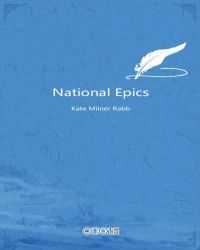THE DIVINE COMEDY.
您可以在百度里搜索“National Epics 艾草文学(www.321553.xyz)”查找最新章节!
THE DIVINE COMEDY.
"This Poem of the earth and air,
This mediaeval miracle of song."
Dante Alighieri was born at Florence, in May, 1265. His family belonged to the Guelph, or Papal faction, and he early took part in the struggle between the parties. In 1274 he first saw Beatrice Portinari, and he says of this meeting in the "Vita Nuova," "I say that thenceforward Love swayed my soul, which was even then espoused to him." Beatrice died in 1290, and Dante married Gemma Donati, between 1291 and 1294. In 1295 he joined the Art of Druggists, in order to become a member of the Administrative Council. In 1300 he was made Prior, and in 1301, when the Neri entered Florence, he was exiled, his property confiscated, and himself sentenced to be burned, if found within the republic. After this he became a Ghibeline, and took up arms against the city with his fellow-exiles, but withdrew from their council at last because of disagreements, and separating from them, spent his time at Verona, Padua, Sunigianda, and in the monastery of Gubbio. In 1316 the government of Florence issued a decree allowing the exiles to return on payment of a fine; but Dante indignantly refused to acknowledge thus that he had been in the wrong. He was in Ravenna in 1320, and died there Sept. 14, 1321, on his return from an embassy to Venice.
The "Commedia" was written during Dante's nineteen years of exile. The three parts, Hell, Purgatory, and Paradise, are emblematic of the threefold state of man,—sin, grace, and beatitude. The thirty-three cantos into which each part is divided, are in allusion to the years of the Saviour's life, and the triple rhyme suggests the Trinity.
The Divine Comedy is written in the terza rima, which consists of three verses arranged in such a way that the middle line of each triplet rhymes with the first or third verse of the succeeding triplet.
The entire time occupied in the "Commedia" is eleven days, from March 25 to April 5, 1300.
Dante called the poem a comedy because of its prosperous ending. The prefix "divine" was given it later by its admirers.
The Divine Comedy is sometimes called the epic of mediaevalism, and again, the epic of man. Dante himself said: "The subject of the whole work, then, taken literally, is the state of the soul after death, regarded as a matter of fact; for the action of the whole work deals with this and is about this. But if the work be taken allegorically, its subject is man, in so far as by merit or demerit in the exercise of free will, he is exposed to the rewards or punishment of justice."
For a time the Divine Comedy was neglected, and even in comparatively recent times the Inferno was the only portion read; but of late years there has been a re-awakening of interest in regard to the whole poem.
In no other of the epics has the author put so much of himself as Dante has in the "Commedia." It was he himself who saw this vision; he himself, proud, tortured, who carried the sense of his wrongs with him through Hell and Purgatory, even into Paradise. We learn the history of his times, all the crimes committed by men in high position, and we also learn the history of the unhappy Florentine, of whose poem it has been said, "none other in the world is so deeply and universally sorrowful." National Epics
